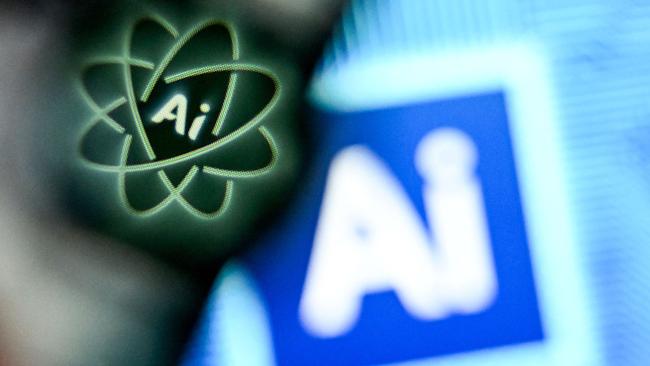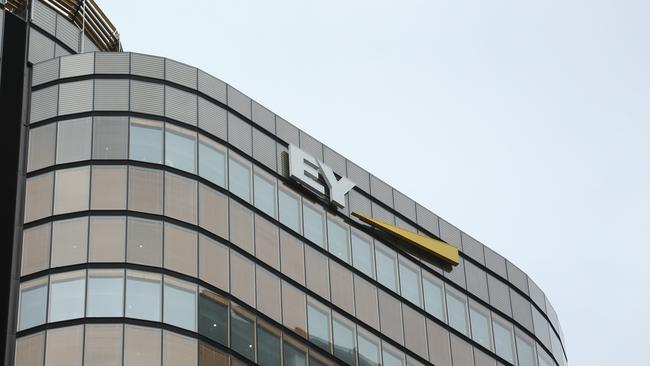Accounting firms reveal how AI has changed professional services and given staff more time
Generative AI is easing workloads equating to as many as seven hours a week for some workers in professional services as the technology disruption begins to take shape.

Generative AI is transforming the consulting industry and reducing the workload by as much as seven hours a week for some workers, as one of the biggest disruptions to Australian workplaces begins to pay off.
Major consulting firms have spent billions of dollars rolling out custom-built virtual assistants similar to ChatGPT in a bid to drive efficiencies, boost productivity and give workers more time to spend on other tasks.
Many have been developed from language models sourced from Microsoft and OpenAI along with in-house creations, allowing staff to format data, write emails, summarise documents and write code, in a shift regarded as a revolution in the industry.
Grant Thornton has seen significant benefits from its “AI@GT” program. The tax team quickly adopted Microsoft Copilot, saving of up to 7.5 hours weekly.
On average, those that used AI daily at the audit, advisory and tax firm saved nearly 50 minutes a day. Since October 2024, 5300 Oceania-based employees at EY have already seen savings of 30 minutes each week using Microsoft Copilot, which the firm expects to increase in coming months.
Grant Thornton national tax managing partner Sandie Boswell told The Australian that AI had removed a substantial administrative burden for employees and would unlock further efficiencies as it was embedded in every service the firm offered.
“This will change the way we work for all of our people,” she said. “This time saving not only allows our people to focus on valuable client work, but also supports our nine-day fortnight, allowing our people to take time to truly recharge and focus on their wellbeing.
“Moving forward, we believe embedding AI into daily workflows will continuously improve service delivery and client satisfaction.”

The use of in-house ChatGPT was seen by some as necessary to avoid employees using third-party platforms and feeding third-party material into those models.
Deloitte has PairD, KPMG has a private version of ChatGPT sourced from Microsoft and OpenAI called KymChat, EY has EYQ and PwC has ChatPwC available to staff.
EY has invested $US1.4bn globally in its proprietary enterprise-scale AI platform, EY.ai, which includes EYQ, a central marketplace for AI, as part of its vision to improve efficiency and unlock value for clients.
EY Oceania chief technology and innovation officer Katherine Boiciuc said AI had improved operational efficiency across the practice, and created significant value for clients.
“It has transformed their day-to-day roles by reducing the time spent on administrative and manual tasks, allowing them to focus on higher-value activities. This shift has not only increased productivity but also enhanced job satisfaction and engagement,” she said.
“We only expect this time saving to increase as more people learn to embed AI into their workflow, adopting it for the more mundane or simple tasks that take up considerable time.”
Nearly half of the employees at EY use AI once or more a day, and 72 per cent have reported an improvement in productivity, with each user having saved around 30 minutes a week.
EY said that Copilot had summarised 38,600 email threads and 145,200 meetings and drafted 145,200 emails in that period.
Ms Boiciuc said EY would now look to build custom AI skills within Australia to deliver sustainable workloads through technology and time savings, which would allow staff to increase their skills and focus on wellbeing.
“By solving our own challenges and discovering lasting impacts, we’ve developed recommendations and insights that can now be shared more broadly to help others on their own transformation journeys with AI,” Ms Boiciuc said.
KPMG estimates AI could automate 40 per cent of tasks in some areas, with a 20 per cent improvement in efficiency on average.
It previously told The Australian this would allow staff to play up the value chain and deliver greater value to clients.
The AI revolution is not evenly spread across the industry, with many smaller firms reporting that they are unable to match the size and scale of AI investments. Boutique firm Rennie Advisory said it was trying to win business off major players by offering human-based services to clients.
Rennie Advisory co-chief executive Simone Rennie told The Australian that while smaller firms could not be left behind, it was imperative to consider how they could differentiate their service to stay competitive.
“It’s a balancing act between making sensible investments in our work and helping us create efficiency or provide a more in-depth level of research as a base starting point,” she said.
“We need to make sure that we’re absolutely differentiating ourselves with that human-led approach because there is still strong demand for that from those who don’t want just the computer doing it.”
Ms Rennie said her firm had incorporated AI to drive backroom efficiencies in research and due diligence.
She said this had improved performance by staff, but added that humans were heavily involved in the process to ensure the firm was offering insights that no one else could offer.
“AI can definitely help create efficiencies internally, but in that experience-based role that we play, there’s just this real human element that we’re hearing is differentiating us from some of our competitors at the moment who have gone more into AI.
“Human experience and insider knowledge is critical to delivering the best outcomes and not just a ready-made solution, but it does require a combination of skills and capabilities including AI to solve those problems.”




To join the conversation, please log in. Don't have an account? Register
Join the conversation, you are commenting as Logout